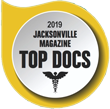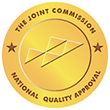Addiction is becoming more prevalent across the country, and Dr. Jeremy Mirabile of Recovery Keys spoke as an expert on the subject on WBOB/600AM’s Ask the Experts show in Jacksonville, Florida on April 8th. To hear his insights and advice on addiction, listen now! Or keep scrolling to read the full transcript of the show.
Intro: WBOB AM 600 and FM 101.1 welcomes you to today’s Ask the Expert show, with local experts in the fields of legal, financial, health, and home improvement. Each week our experts offer educational information on important subjects that affect your day to day living. Now, sit back and enjoy today’s Ask the Expert.
Roger: Hi, this is Roger and welcome to our Ask the Experts program here on WBOB AM 600 and 101.1 FM The Answer. We are joined in the studio today by Dr. Jeremy Mirabile of Recovery Keys. Welcome to the Ask the Experts program today.
Dr. Jeremy Mirabile: Thank you for having me, Roger.
Roger: Tell us a little bit about your background and what you do.
Dr. Jeremy Mirabile: Sure. I’m an addiction medicine trained physician, board certified in addiction medicine, and I work at Recovery Keys Drug and Alcohol Treatment Center in Jacksonville, Florida in St. Augustine.
Roger: Okay, great. You do a very important work. Addiction, I understand, is becoming a real big problem right now in the country and all communities, across all economic classes, demographics, we seem to experience this epidemic with all types of drugs, including things like alcohol, and lately we’re hearing a lot about opioids. What are you seeing on the front lines in treating those types of addictions?
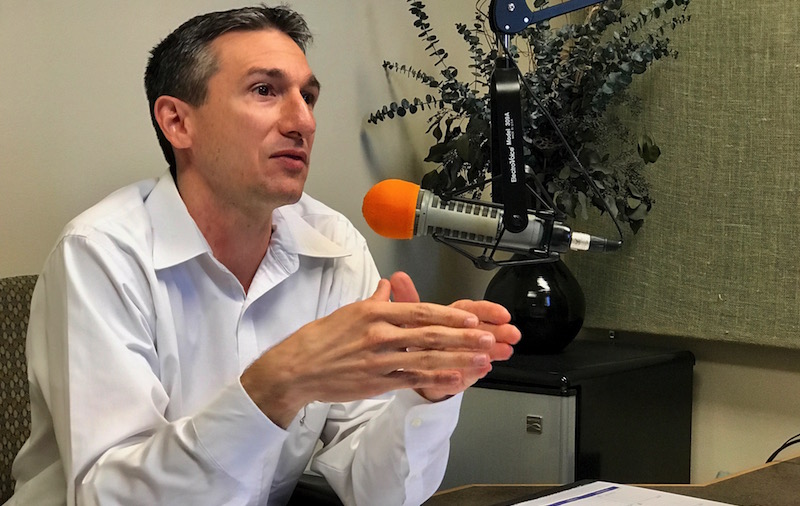 Dr. Jeremy Mirabile: Unfortunately, a lot of our folks suffering with this disease are just waiting too long to come in, you know? It’s the shame, it’s the hiding, who do I ask for help, where do I go for help, and really resources are available. Taking that courageous step as early as possible is so important. I don’t really need to lose everything, I don’t need to be homeless, I don’t need to lose my job, I don’t need to be under the bridge, I just have to glean enough insight to say things are not going the way I anticipated them, and I need some help.
Dr. Jeremy Mirabile: Unfortunately, a lot of our folks suffering with this disease are just waiting too long to come in, you know? It’s the shame, it’s the hiding, who do I ask for help, where do I go for help, and really resources are available. Taking that courageous step as early as possible is so important. I don’t really need to lose everything, I don’t need to be homeless, I don’t need to lose my job, I don’t need to be under the bridge, I just have to glean enough insight to say things are not going the way I anticipated them, and I need some help.
Roger: I think in the back of people’s minds, doctor, when people think of these very, very strong addictions like to things like heroin, they almost think it’s like there’s no hope, you know? That’s actually one of the first things that comes to my mind. If someone’s on crack, there’s no hope for these people. What can we as a community, to reduce the number of those affected by substance abuse disorders, and is there hope?
Dr. Jeremy Mirabile: Absolutely. That’s one of those big myths out there is that there’s really nothing to do, and that these are forgone conclusions, but the reality is it’s a medical condition and there is appropriate medical treatment to address this medical issue. Once someone kind of takes the first courageous step to get assessed, they are given a diagnosis in terms of is this a mild, moderate, or more severe situation going on, and then a treatment plan is recommended that meets them where they’re at.
If they have a mild case of this condition, they can be treated often on an outpatient basis and some significantly severe cases may need to have more intensive treatment than that.
Roger: Yeah. I probably will go down in history as being one of the good little guys; I’ve never been high in my life. I’ve never been drunk in my life. I remember back when I was I’m guessing about five years old, my grandparents sat me down in an area, they converted their garage to an area we just hung out with, called the red room. It was all decorated red, and they sat me down one day, and I love my grandparents so much, and they said, “Roger, have you ever heard of drugs?” I said, “Yeah I heard something about it,” I’m five.
Dr. Jeremy Mirabile: Yes.
Roger: They began to scare the living daylights out of me. To this day that stuck.
Dr. Jeremy Mirabile: There’s a lot of truth in what you’re getting at, what you’re saying, and that gets back to the question you asked, what can we do to prevent this? One of the things we know from scientific literature is that the earlier someone is exposed to an addictive chemical, the more likely they will have a problem later in life. There is some benefit in the developing brain, the adolescent brain, to really avoid drugs and alcohol all the way through that experimental phase, if possible.
That whole myth out there, that as long as they have a glass of wine at home with the family, in Europe things are so much better. The reality is when you look at the data, that’s just not the case. They have a lot more-
Roger: That’s good that you’re saying that because we hear a lot of these comparisons, well, Europe has legalized drugs in places like Denmark, why can’t we be like them and it would reduce crime and problems talk about that.
Dr. Jeremy Mirabile: Well, just look at the World Health Organization data that they’ve gathered over many decades, and they rate each country in terms of quality of life impairment and societal cost as a result of drug and alcohol abuse. Certainly those European countries actually outrank the United States in terms of lost work days, hospitalizations, and societal cost as a result of the prevalence.
Nowadays of course when you hear that, well, let me introduce my young child to this at home, I would advise against it, and the literature sort of supports that. Do not start those substances early.
Roger: Yeah, this is so good. We are here with Dr. Mirabile, of Recovery Keys. You can learn more about the service he offers at recoverykeys.org that’s recoverykeys.org. If you or a loved one is suffering from an addiction, there is hope, regardless of what the problem is. I’m sure you’ve seen success stories right?
Dr. Jeremy Mirabile: Absolutely. It doesn’t take too many, but there are many, especially with appropriate treatment.
Roger: Yes and we were talking before the program began today, about how some people have a predisposition to be addicted. I was talking with you about some of the things that run in my family. There are people who have drinking problems in my family, to be perfectly honest with you, I’ve never been drunk. I’m scared of being drunk because I know it runs in the family, but I have noticed things showing up that could indicate if I were exposed to alcohol, exposed myself to it on a regular basis, I could be addicted.
Sugary drinks, I found out, it dawned on me, I actually love the stuff. It seems like I can’t go a day without having a sweet tea or a soda, which is bad in enough itself, but at least it’s not heroin. Talk about that particular aspect of it, is it a moral failing, or is it something that people have a medical predisposition to, based on their genetics.
Dr. Jeremy Mirabile: It’s absolutely a biologic condition. It’s a medical condition, and we know that some folks have this medical condition from birth, not too different than diabetes. There are some young infants, unfortunately born with lower beta cells in the pancreas producing less insulin and we call them diabetic.
In this case there’s a part of the brain called the reward center, and if the reward center is born with lower levels of I’m okay chemical, feel good chemical called dopamine. If the dopamine levels are just innately low, I’m going to have a propensity, or have this condition maybe even before I get exposed to drugs and alcohol.
Therefore, as I go through life, potentially, in early adolescence, I’m one of the best basketball players or I’m the best pianist or I have a great singing voice, and people tell me how wonderful I am, and I get filled up, and I maybe don’t use or seek substances.
When things sort of go away and I’m maybe left with my biologic predisposition, and I stumble upon drugs or alcohol, ah-ha moment possibly comes and I realize that maybe I am changing the way I feel, in a dramatic way, and that really substituting for other life activities to fill the void.
Roger: Talk about what are the things that parents need to be aware of, when there are young people … I’m imagining someone who has a problem with drug dependency, they probably got exposed to it when they were young-
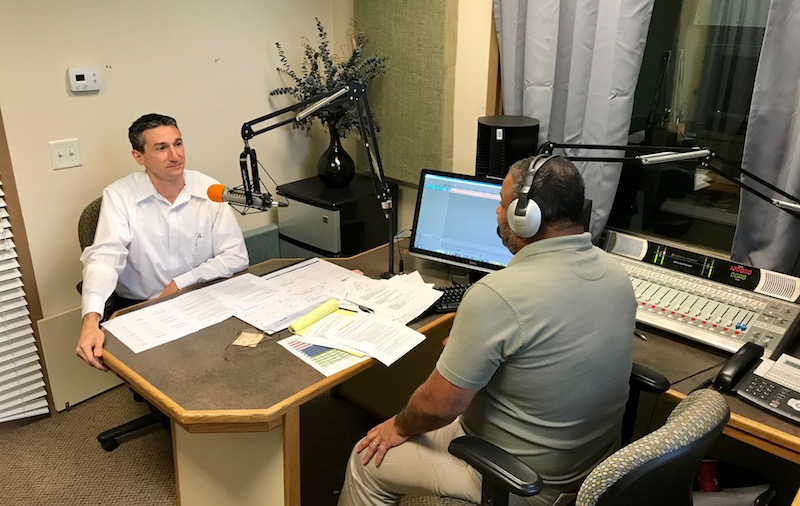 Dr. Jeremy Mirabile: Yes.
Dr. Jeremy Mirabile: Yes.
Roger: Is there, are there things that you see common with young people who have been exposed to drugs at a young age that parents need to be on the lookout for?
Dr. Jeremy Mirabile: Yeah, I mean the behavior change definitely influence of people, places, and things we say, if my behavior of my child changes, the grades change, we often don’t talk about whether it’s at a younger age or at an older age. It’s not so much what, or how I use, it’s more like what happens when I do.
If I’ve noticed a dramatic change in behavior, a dramatic change in goals and grades and so forth in my youngster, then take a deeper look, it doesn’t hurt to potentially put them on the spot and get an over the counter testing device.
Roger: I was going to ask you about that because I wonder how that affects the parent child relationship if mom and dad come home and they want you go on this stuff. Does that make the kid feel like they don’t trust them or can the parent package that in a way that says you know I trust you but I don’t trust the world out there around you. I just want to make sure because I love you, how can a parent provide that exposure to the potential of a drug problem with the kid, without making the kid feel like the parent doesn’t love or trust them?
Dr. Jeremy Mirabile: It’s a very difficult topic and I wish I had an easy answer for that one. I would suggest that the parents take some advice from a counselor or so forth and ask, how should I approach this with my son or daughter and is this an isolated incident or what’s going on, because it can do potentially some damage to a relationship.
I always kind of remind my parents who are struggling with enabling issue meaning I’m their parent not their friend kind of thing.
Roger: Right.
Dr. Jeremy Mirabile: I’m really looking for the best health interest of my child. If it’s received that way that’s a beneficial thing.
Roger: Well you’re listening to Ask the Experts here on WBOB AM 600 and 101.1 FM Dr. Mirabile, is here with Recovery Keys and he is an addiction doctor. One of the few there are not very many guys like you helping people, right?
Dr. Jeremy Mirabile: Well there needs to be more. Certainly from the medical standpoint, MD type physician who then go into a specialty of addiction medicine are few and far between, especially with our given epidemic now we need a lot more hands on deck that currently are.
Roger: Right, they can get in contact with you through website, recoverykeys.org, that’s recoverykeys.org. We’ve discussed a lot of things already in the brief time we’ve been together today. One thing that’s clear is that this is not necessarily something that’s tied to a moral feeling, but it’s a disease.
Dr. Jeremy Mirabile: Absolutely.
Roger: Just like cancer diabetes and lupus. Are we seeing similar advancement in the treatment and understanding of addiction as a disease?
Dr. Jeremy Mirabile: Yes we’re, it’s just coming a bit later than some of the other specialty fields. We have very effective treatment now, evidence based type stuff has been validated over years and decades it’s really just a matter of getting folks to these places to get help. There are some barriers to care, you having to do with insurance coverage or access for that particular service. You know if they have the opportunity to get care then it is often successful if they really give themselves to the process.
I’ve had a lot of folks come through treatment, checking boxes in a way, but like most treatments for chronic diseases there is an uncomfortable portion to the treatment. Really if they are willing to go through that comfortability and work through some challenges and difficulties we can get to core issues and really put this disease into remission.
Roger: We’ll be right back with more of Ask the Experts.
Commercial: With offices in Jacksonville and St Augustine, Recovery Keys is Northeast Florida leading provider of addiction treatment and rehabilitation. Recovery Keys recognizes addiction as a disease not a moral failing. Our team of board certified physicians and counselors are experts in treating individuals struggling with alcohol, drugs and pain medications.
Begin a new life free from the ravages of addictions. Call Recovery Keys right now at 904-834-4010., that’s 904-834-4010, to speak with our addiction specialists standing by ready to help, 904-834-4010.
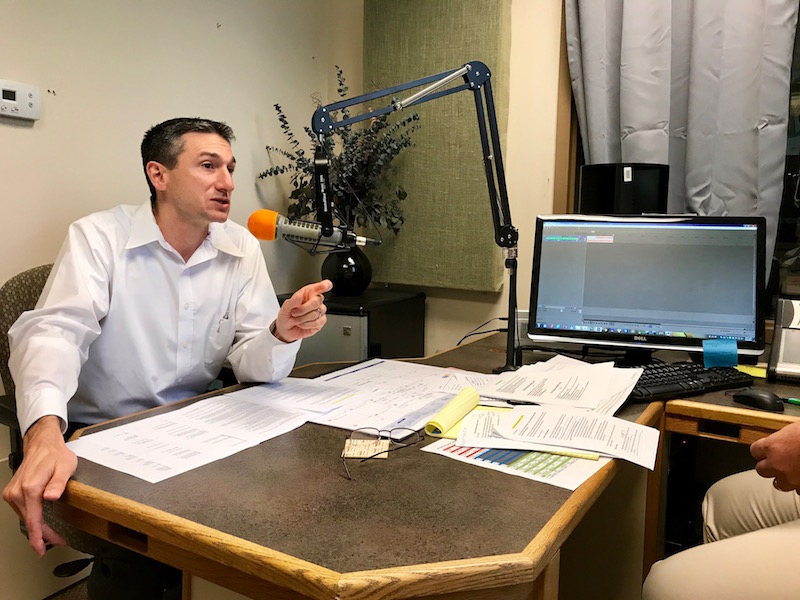 Let’s return to today’s Ask the Experts on WBOB AM 600 and FM 101.1 The Answer.
Let’s return to today’s Ask the Experts on WBOB AM 600 and FM 101.1 The Answer.
Roger: Welcome back to Ask the Experts here on WBOB AM 600 and FM 101.1 The Answer. Talk about people falling off the wagon and do you see people successfully getting treatment and getting help and staying at a healthy place after they may have failed with treatment in the past?
Dr. Jeremy Mirabile: Absolutely, it’s really like a building block. Some folks say, well I’ve been to treatment once or twice or three times or even six times, I’m just going to stop now, and that’s absolutely not the thing to do. If I had diabetes or I had lupus or I had asthma I will continue to treat this lifelong condition until I put it remission hopefully.
It’s the same with the disease of addiction, you know often takes multiple treatments, and there are building blocks. You know the first time around I learned one point, the second time around I learned another. By the time I get to the third fourth fifth time, I’m able to put it all together in the context of a safe environment and really go into remission.
That remission state is really defined by me as a person or patient with this condition accepting that I have a disease. Not the fact that it’s bad luck, not the fact that it was Johnnie or Susie down the block, and not the fact that it’s a moral failing, but or more really coming to terms with the fact that I have a lifelong chronic medical condition and that I will take care of it going forward. I can’t one and done this, I can’t got for 30 days, I can’t go for 60 days and say well I did that then and now things are better and I don’t have this.
I can’t go to the local place where folks are using, let’s say drugs and alcohol and social dabble I’m different. In the same way someone with diabetes might say, it’s not fair that I have diabetes, everyone else can eat cake and cookies, all day. Well the CDC estimates that 10% of the population have diabetes. They can be angry and frustrated that they have it but sure as heck if they continue to eat cake and cookies like 90% of the other population they are going to end up in the hospital or dead.
Roger: Why do you think addiction is so misunderstood?
Dr. Jeremy Mirabile: Well it gets back to that whole will power thing. This is a disease that has very little to do with will power or nothing to do. In fact, the folks that I see who have this disease have a large amount of will power and you’d be surprised at how much will that they can exercise in order to get the chemical.
Really what it’s about is the survival part of the brain has been hijacked and really taken over by powders and liquids that are not essential for survival. Instead of foods, water or sex even I’m going to seek drugs or alcohol because my brain, at a deep level is basically telling me I need that to survive and not food and water.
Roger: Interesting. I spoke with a friend of mine who happens to be a pastor in the Inter-City. I’m guessing this had to have been 10 years ago. He said, that there are certain things that the lay person if they knew what they were looking for, can tell when someone is addicted to certain types of drugs. Do you know what those, I’m sure you do.
What are those things that people if they were to look at someone can tell that person probably had a drug problem; he even mentioned things with their fingers and fingernails looking like they were discolored. What are some of the things that help people, where we have a potential for an intervention that the family may need to know about?
Dr. Jeremy Mirabile: Yes one thing I don’t want to add to any stigma by sort of saying, judging a book by its cover and saying, oh look well they have this sign, that means they are obviously this, and you know they are sick and so forth. There are certain things that come with each category of use. For example if I were using an instrument to smoke a substance and that instrument gets very hot, over time if I do that continuously, I may build calluses up on the hand or figure in which I hold that hot object.
Another thing if I take substances or chemicals through my nose per se, I might have some changes with my nostrils or the way they appear on the outside or even on the inside. I might also have depending on the class of substances that I use, I might have a series of withdrawal effects that can look like a flu, cold sweats and diarrhea and some other stuff.
Roger: I would imagine drastic weight loss would be another one in some cases?
Dr. Jeremy Mirabile: Absolutely, I’m glad you bring that up because you know that part of the brain that I was mentioning that subserves rewards like food and water, if I use drugs and alcohol it basically pushes out food and water and so I eat less and drink less. Most of my folks that I see on the front end are say malnourished and dehydrated.
They are underweight and their hydration status is very poor, because that part of the brain, that reward center that’s normally supposed to say eat more you need more calories, or drink some water you’re dehydrated is actually subserving that drugs and alcohol craving, and not the true survival food and water.
Roger: Right, I think of things also like sudden severe dental problems. Is that an area that you look at as well?
Dr. Jeremy Mirabile: Can also be depending on the substance, the choice that somebody uses. It goes towards you know the fact that the chemical itself can be caustic or damaging to the dental enamel and the gingiva and the gums. Or it can be more towards that self-care issue, so the fact that when I’m using not only do I forget about food and water, I forget about brushing my teeth certainly and I forget about other hygiene issue and that can lead to signs as well.
Roger: Okay, things you should know about if you need to stage an intervention in the life of someone you love. We’re here with Dr. Mirabile, with Recovery Keys on our Ask the Experts program here on WBOB AM 600 and 101.1 FM The Answer. One of the very few doctors that specialize in addiction treatment with the offices in both Jacksonville and St. Augustine you can learn more about his practice when you visit recoverykeys.org, that’s www.recoverykeys.org.
We have been learning a whole lot since you have been in the program with us today doctor. What’s happening in the body and the brain when someone is addicted?
Dr. Jeremy Mirabile: Well we kind of hinted that some of those changes that happened in the reward center where it basically goes offline. If you think of the reward center as your gas tank, and I need about 50% in my gas tank or a half tank to really feel okay and move forward. Once I start using powerfully addicting chemicals or even before I start using, my gas tank maybe on quarter tank or on empty. If that’s the case I really going to seek whatever it is, doesn’t matter if it’s drugs or alcohol, shopping, gambling or other, what we call process addiction to basically fill that void.
Roger: Very interesting. We kind of touched on this a little bit but people like me we call it falling off the wagon, in the medical profession they call recidivism. What do you see with respect to recidivism rates with people who have this particular disease?
Jeremy Mirabile: Well notoriously they’ve been high, and if they get appropriate treatment and intense treatment the recidivism rates can be much lower. I point to some of the studies that have been done in the physician health programs nationwide. There has been a study by Bob Dupont and Greg Skipper that really looked at a 1000 medical professionals who were treated over five years and monitored and 80% of those individuals were abstinent at a five year mark.
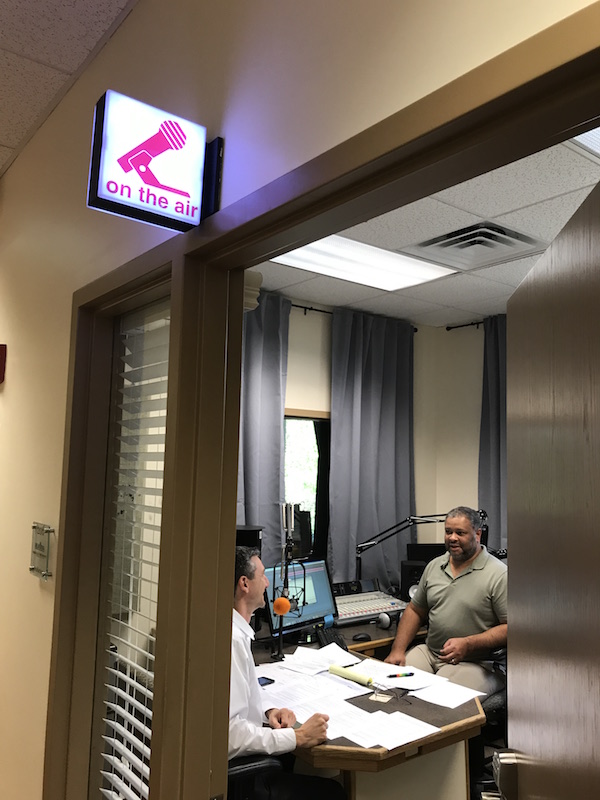 Roger: That’s good, that’s really good. I’m sure you have seen success rates that are very high with your practice, right? What are the numbers with respect to your services?
Roger: That’s good, that’s really good. I’m sure you have seen success rates that are very high with your practice, right? What are the numbers with respect to your services?
Jeremy Mirabile: Well we kind of mirror the physician heath program, if they get a successful completion. Now a successful completion is not handed out lightly. If somebody comes into treatment and does the bare minimum, they probably won’t hit the bar for the successful completion. That would require a willingness to kind of go some places that are uncomfortable and do some things that I might not want to do but I kind of need to for the sake of treatment.
Roger: Right, and we kind of touched on this a little bit, off the air. Different people I guess have different levels of treatment they need, some people have to actually have to be admitted to a facility where other people can work their day job and maybe come to meetings occasionally and see you.
Dr. Jeremy Mirabile: Absolutely.
Roger: Talk about the different levels of treatment available based upon the severity of the addiction.
Dr. Jeremy Mirabile: Absolutely and it starts with that evaluation. During the assessment phase we’re really trying to get a gauge. Similar to if we were talking about another chronic medical condition like diabetes some folks can do exercise and diet, some people can take oral medications, and some people need four shots of insulin a day and some other interventions.
Similarly, you know with addiction if it’s mild, moderate or severe you match the treatment intensity with the severity of the diagnosis. The other component with that is basically do they have a safe place to live. We may have someone with a moderate to severe addictive disease. If they have a safe supportive environment in which to live, they could do treatment on an outpatient basis, believe it or not.
It’s five days a week and it’s fairly intensive but it would prevent that potentially more uncomfortable move of going overnight somewhere .
Roger: Right, I have got a friend and who called me I guess it was about six months ago in another state Ohio where his little girl who was a teenager, daddy’s little girl, always daddy’s princess has become addicted to heroin. We’re seeing an increase of what’s called opioids right now, what do you think the reason for that is?
Dr. Jeremy Mirabile: Oh goodness. It goes back to probably some of the onus on the medical community in which we were liberally prescribing opioids without fully understanding the really risk of unmasking the disease of addiction of precipitating that in several venerable individuals. We even had some regulations where accreditation agencies were complimenting physicians and healthcare agencies for taking pain levels down to zero.
Nowadays, we’d argue that that’s an unrealistic goal to have zero pain in a health care facility but at one time 15 or more years ago, that was looked at as a goal. I think the origin kind of bear out of some of that and expectation, if we can give sight to the blind and heal broken bones that we should be able to minimize or eliminate pain which is …
Roger: Back when you and I were kinds we heard the word heroin and that was like one of the scariest words ever because people were using needles and severely addicted and the withdrawal was one of the worst things that people could actually go through in life. Now young people seem not to have that same fear about opioids and heroin and needles and that kind of thing.
Dr. Jeremy Mirabile: It may start with the cleaner version of prescription opioids and then since in 2011, 2012 the pill mills got closed down in access to these more sterile types of opioids and prescription had this “safer“ kind of image because they were prescribed short acting opioids but they still had the same potential to cause this disease.
Roger: Sometimes doctor your prescription for pain medication and it’s the same stuff that’s in heroin?
Dr. Jeremy Mirabile: Basically yes. Heroin is not as … Obviously there is no telling what’s in it and sort of where it comes from and the other ones are … But they are in the family of opioids, which is in the family of morphine. Nowadays with the pain access to those more sterilized forms of opioids or morphine, you have heroin coming through and basically it’s much cheaper easy access. For folks who are dependent on pain medicines that’s filling the void.
Roger: You’re listening to the Ask the Experts program here at WBOB AM 600 and 101.1 FM The Answer on Roger [Henderson 00:18:30] and we’re here with our guest Dr. Mirabile, with Recovery Keys. These are one of the very few recovery specialists, doctors that help people with addiction issues, maybe there is someone you love, care about who is addicted.
What are some of the things that people come to you with addictions, I guess would be things from alcohol to these very strong opioids. List the things that people get treatment for?
Dr. Jeremy Mirabile: Well certainly alcohol had been number one for years and years and it’s still close but opioids have actually overtaken alcohol in terms of prevalence. In 2011 and 2012 we saw a greater influx of folks depending on pain pills and opioids than even alcohol.
Roger: Here in the Jacksonville and St. Augustine, Florida areas?
Dr. Jeremy Mirabile: Yes absolutely. Those are numbers right out of the detoxification units sort of serving the communities. You got a very close first and second with opioids and alcohol and then you have cocaine and then you have marijuana even and you have benzodiazepines such as Xanax. Then you have other addictions which are not necessarily pharmaceutical. I’ve had one person who in particular was overly compulsive with his work and it ended up in sleep deprivation and some events that happened in a medical setting that were avoidable had he been properly resting.
Roger: You mentioned marijuana and there is a trend right now across the country, California, the state of Washington, Oregon, Colorado and now the good old sunshine state, we have legalized medical marijuana. Some states have even legalized recreational marijuana. We hear historically of marijuana being discussed as a gateway drug.
People become addicted to more serious drugs because they start off with something like alcohol and then marijuana, talk about that?
Dr. Jeremy Mirabile: It’s a bad idea. One of the interesting things that we know is that it also goes through that reward pathway of the brain and in venerable individually it can really blossom or set off this disease of addiction. Now that’s not to say that 90% of people can’t use marijuana and not become addicted to it, that is possible but for the venerable 10 to 20% of the population with this disease, it’s a nightmare, really.
The fact that folks are going to exposed to this if it becomes … One thing that happened, which is quite interesting is we took a popular vote on a process that is normally delegated to the food and drug administration. So, we the people, have legalized medical marijuana, and medicines, this is unprecedented actually. Medicines go through an FDA process for use and for distribution by prescribing physicians.
We have potentially on the verge of setting up dispensaries, folks without a medical license to potentially evaluate patients and then dispense quasi medication that we don’t really know what’s in it.
Roger: Right. Well just because something is legal doesn’t mean you have to use it. You can think of a lot of things that are not “legal” that people don’t necessarily have to take advantage of just because it’s now legal and you would discourage it I’m imagining?
Dr. Jeremy Mirabile: Yes really the interesting thing also medically from a medical standpoint, the route of administration, there is no other medicine that is delivered through burnt particulate matter. Basically when somebody smokes something those small burnt fibers go down into the lungs and sort of settle there and we don’t have another medicine in all of medicine that we distribute in such a fashion.
Roger: Right, even with respect with the medical benefit that’s in marijuana and I’m not an expert you are, that can be prescribed as I understand either through pill form or through an injection but instead it’s been smoked I guess and eaten. When you smoke it then you’re sharing it with everybody in the room including children who might be nearby.
Dr. Jeremy Mirabile: What a good point, absolutely. Marinol has been an FDA approved cannabinoid medication with the active ingredient of marijuana available for decades. It’s tremendously unpopular, and now the smoked preparations of this have become very popular.
From an addiction medicine standpoint, I understand why scientifically because the potential for euphoria or mental disassociation is higher with a faster route of administration. Anything smoked gets to the reward center into the brain much faster than oral preparation.
Roger: We’re here with Dr. Mirabile, with Recovery Keys on the Ask the Experts program, you can reach him at www.recoverykeys.org. Dr Jeremy Mirabile is one of the few medical doctors in our area that specializes in addiction recovery with a tremendous success rate and if you have someone who has struggle with addiction may want to visit his website and get in touch because he can offer help.
Insurances is that a way to cover your services?
Dr. Jeremy Mirabile: Yes, that’s the good news. Insurance does cover drug and alcohol treatment for folks depending on the policies and there is a lot of details in that but in general it’s available. There are community resources for those who don’t have insurance, safety net type stuff for each community. I think in Jacksonville, Gateway and River Region do a good job for us. Then EPIC and Stewart-Marchman a little bit further south of here.
There is really no excuse not to get help in some form of fashion. If I do have commercial based insurance and I can go to a treatment center such as Recovery Keys that’s fantastic. If I don’t have any insurance or any resources I can still get help, at least through the community based providers.
Roger: I can hear your heart and your compassion for those who are suffering, because you not just trying to get people to come to your services, which is Recovery Keys, but get help where they can get it.
Dr. Jeremy Mirabile: Absolutely.
Roger: I admire that and commend you for letting that be known with those who may not have the insurance that covers it. Let’s ask one last question, the addiction problem not only affects that person but it affects their ability to provide or affects maybe the atmosphere in the home, talk about how addiction not only affects the individual but everyone around them?
Dr. Jeremy Mirabile: We say right up front that it’s a family disease. Often some of the ones suffering the most are actually the family members. In good treatment when an individual comes in often the best gift that they give is to the family to say I’m going to get help and they can actually sleep at night knowing that their loved one is getting treatment for their condition. That’s one of the perspectives that we provide for the patient and the family to actually take this courageous step is give it as a gift to those who are concerned for you.
The family also becomes enmeshed in the process. As that individual has become overtaken by the behaviors that drive the disease they’ve had either distance themselves or potentially be part of the addiction cycle and subserve the really demand of that person. It’s exhausting, it’s dangerous and it really needs to be also addressed and treated. While their loved one is in treatment we often recommend specific help for the family to get healthy again.
Roger: Good information thank you so much Dr. Mirabile, today for being on the Ask the Expert program, if you’d like to get in touch with the doctor, recoverykeys.org, recoverykeys.org. Thank you for joining us today.
Dr. Jeremy Mirabile: Thank you for having me Roger.
Commercial: With offices in Jacksonville and St Augustine, Recovery Keys is Northeast Florida’s leading provider of addiction treatment and rehabilitation. Recovery Keys recognizes addiction as a disease not a moral failing. Our team of board certified physicians and counselors and experts in treating individuals struggling with alcohol, drugs and pain medications.
Begin a new life free from the ravages of addiction. Call Recovery Keys right now at 904-834-4010, that’s 904-834-4010. To speak with addiction specialist, standing by ready to help, call 904-834-4010.

